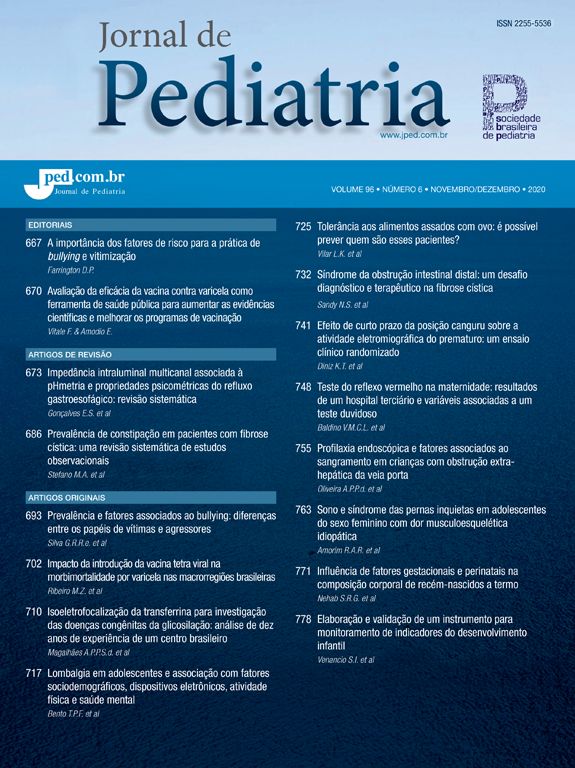To investigate the role of dietary calcium and vitamin D in the process of growth and development of children and adolescents, focusing in particular on the prevention and treatment of delayed growth caused by nutritional deficiency.
SourcesInformation was gathered from articles published in the last 2 decades, from searches on the databases SciELO, PubMed and Medline, technical books and publications of international organizations.
Summary of the findingsGrowth is influenced by intrinsic (genetic and metabolic) and extrinsic factors (environmental factors such as diet, health, hygiene, housing and access to health services). Among the nutritional factors are vitamin and oligoelement deficiencies which may be associated with malnutrition or caused by insufficient absorption. Since calcium is one of the main mineral components of bone tissue, it is essential for adequate bone formation and, considering that vitamin D plays an important role in calcium metabolism, a diet with insufficient quantities of these nutrients can impact on the formation of the skeleton and on the process of growth and development.
ConclusionsIn children and adolescents, low intake or low absorption of calcium and vitamin D may limit their statural growth, and it is necessary to supply sufficient quantities of both during the critical growth phases.
Verificar o papel nutricional do cálcio e da vitamina D no processo de crescimento e desenvolvimento infanto-juvenil, visando, em especial, a prevenção e o tratamento do atraso de crescimento causado por deficiência nutricional.
Fontes dos dadosAs informações foram coletadas a partir de artigos publicados nas 2 últimas décadas, pesquisados nas bases de dados SciELO, PubMed e MEDLINE, livros técnicos e publicações de organizações internacionais.
Síntese dos dadosO crescimento sofre influência de fatores intrínsecos (genéticos e metabólicos) e extrínsecos (fatores ambientais, como alimentação, saúde, higiene, habitação, e o acesso aos serviços de saúde). Entre os fatores nutricionais, destacam-se as deficiências de vitaminas e oligoelementos que podem se associar à desnutrição ou depender da absorção insuficiente dos mesmos. Sendo o cálcio um dos principais componentes do tecido mineral ósseo, este é essencial para uma adequada formação óssea e, considerando que a vitamina D desempenha papel importante no metabolismo do cálcio, uma dieta insuficiente nesses nutrientes pode influenciar a formação do esqueleto e o processo de crescimento e desenvolvimento.
ConclusõesA baixa ingestão ou baixa absorção de cálcio e vitamina D em crianças e adolescentes pode limitar seu desenvolvimento estatural, sendo necessário fornecer quantidades suficientes de ambos na fase crítica do crescimento.








